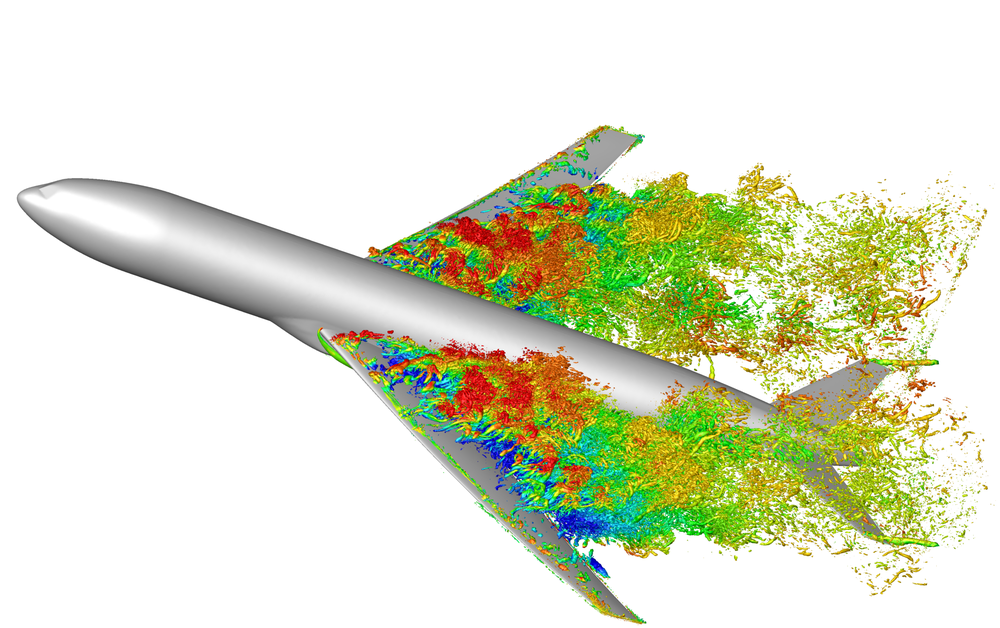C²A²S²E Department

Methods for multidisciplinary simulation and optimization for the virtual aircraft
The main activity of the C²A²S²E department is the development of numerical methods and processes for the multi-disciplinary simulation and optimization of aircraft - from flight physics design to virtual certification.
Competencies
In addition to the development of physical models for complex flows and cutting-edge solution algorithms, we are also active in the development of efficient optimization strategies covering all relevant disciplines, as well as developing surrogate models based on high-fidelity methods. The customization of numerical methods for optimal efficiency on high-performance computer clusters is of particular importance to the department. The unstructured flow-solver developed at C²A²S²E is routinely used for a wide range of simulations in both research and industry throughout Germany and Europe.
To make sure that numerical flow simulation is fit for the future, we are currently developing the next generation of flow solvers. Further development of this software takes place within a European collaboration with the French Aerospace Lab ONERA and our industrial partner Airbus. In addition, we provide simulation methods and software solutions for multi-disciplinary analysis and optimization, data-driven simulations as well as the design and site assessment of wind turbines.
Main research topics
- Modeling of turbulent aerodynamic flows for industrially relevant configurations using high-fidelity RANS models (Reynolds-Stress-Models) and scale-resolving approaches (hybrid RANS/LES, SAS, LES)
- Development of flexible methods for the simulation of laminar-turbulent transition
- Development of accurate, robust and efficient CFD methods for the simulation of turbulent flows around complex aircraft configurations
- Development of a next-generation CFD solver
- Tailoring the developed solution algorithms to the effective use of massively-parallel cluster architectures with highly efficient processor communication
- Detailed, multi-disciplinary maneuver simulations
- Development of aerodynamic and multi-disciplinary optimization methods (MDO)
- Development and provision of surrogate models, reduced order models, error-estimation and machine learning methods for the efficient determination of aerodynamic data and loads over the whole flight envelope
- Development of methods for fusing experimental and numerical data
- Formulation of methods for the quantification of aerodynamic uncertainties leading to more robust aerodynamic designs
- Development and deployment of an adaptable simulation environment for multi-disciplinary simulations and optimizations on highly parallel cluster architectures
- Dedicated activities for verification and validation of numerical methods and models, including dedicated experiments
- Quality controlled software solutions and user support
- Realization of best practices up to AI-based expert systems
